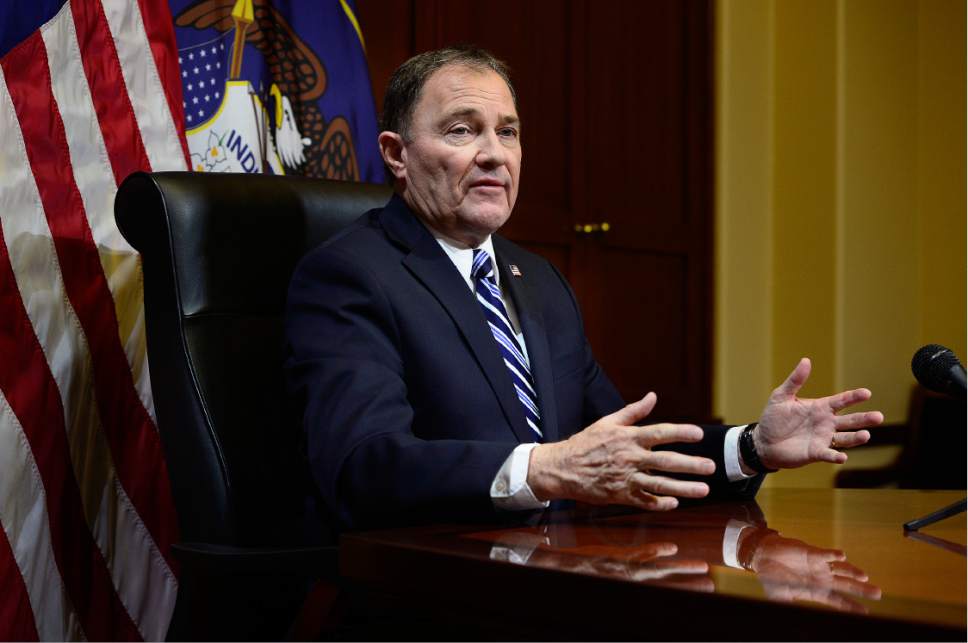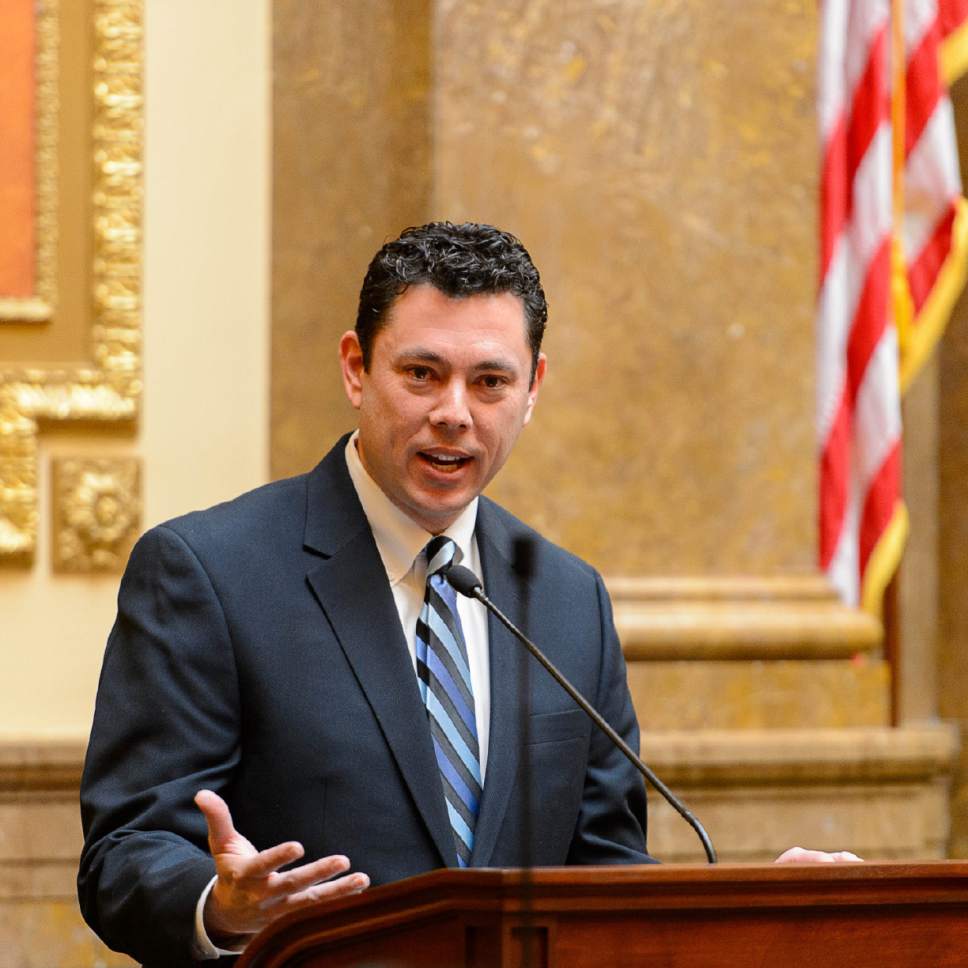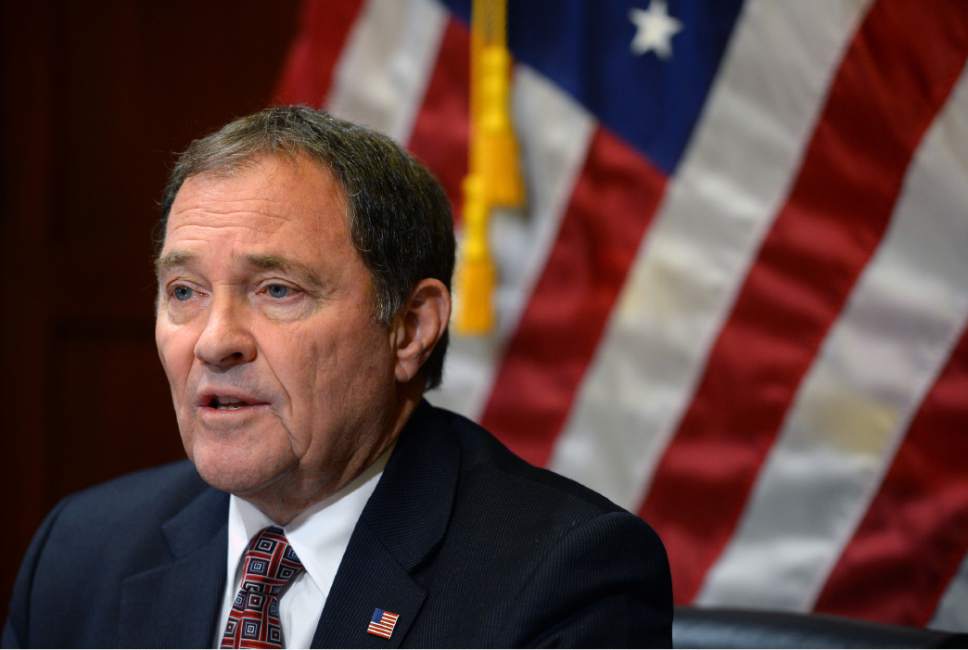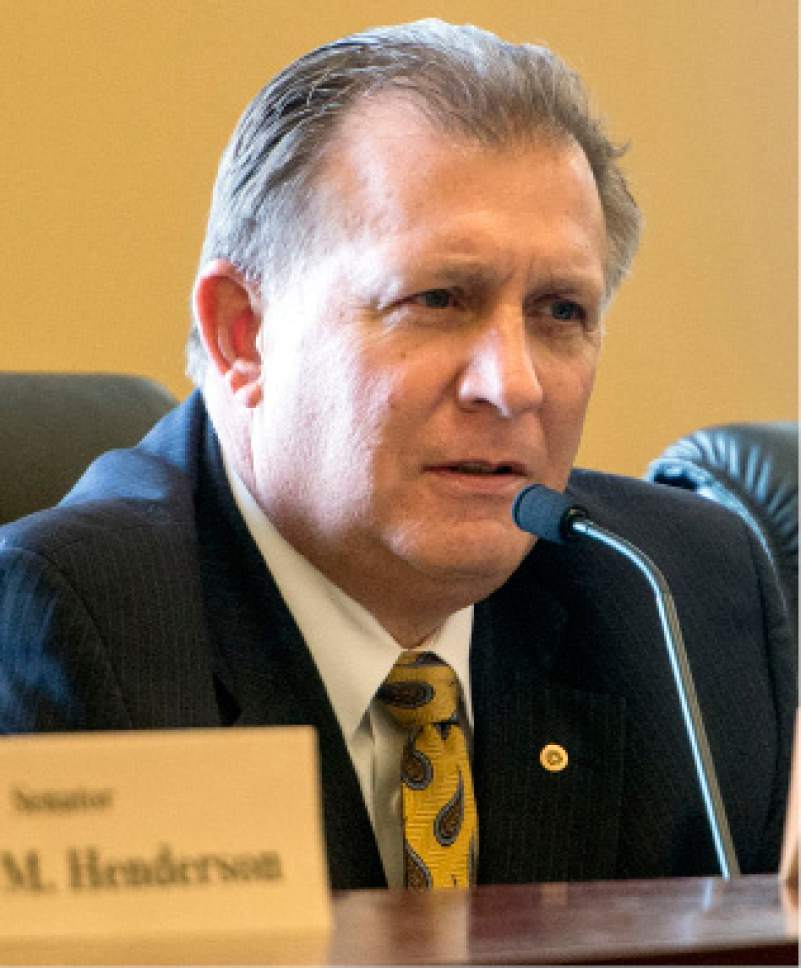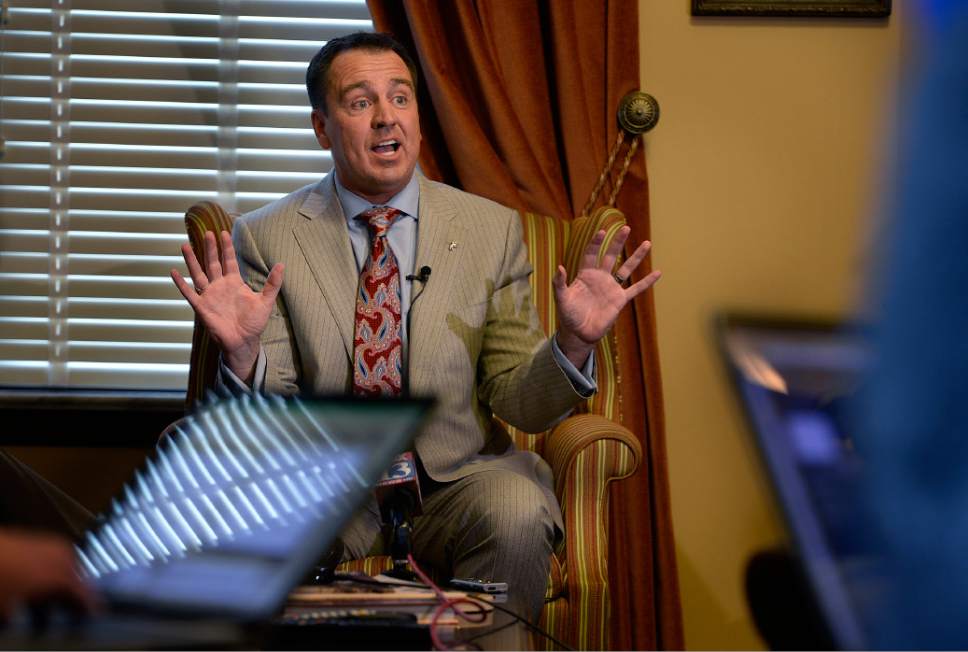This is an archived article that was published on sltrib.com in 2017, and information in the article may be outdated. It is provided only for personal research purposes and may not be reprinted.
Washington • Gov. Gary Herbert says he is wary of calling the Utah Legislature into special session to flesh out state law on electing a U.S. House member midterm because a number of lawmakers might have a vested interest in boosting their own chances to win the seat.
Rep. Jason Chaffetz says he won't run for office in 2018 and may step down early, and there's no shortage of potential candidates, including several state lawmakers.
"We don't want anyone gaming the system," Herbert said in an interview. "We have a number of legislators who are considering running if Congressman Chaffetz steps down. We don't want it to look like they're somehow trying to help their own political futures by changing the system on the books now."
Utah law says only that the governor shall call a special election for a U.S. House vacancy without spelling out any details. (In the case of a vacant U.S. Senate seat, state law allows the governor to appoint a replacement from three nominees selected by the same party as the previous senator.)
Herbert sees no problem with current law.
"Frankly, I think the laws are on the books now that tell us what we do to conduct elections," he said, adding that the state election office can handle the logistics of a race.
"The same process that Congressman Chaffetz went through [to earn his seat], his replacement ought to go through that same process again," Herbert said.
House Speaker Greg Hughes, who is considering a bid for the 3rd Congressional District seat if Chaffetz steps down, said a special session of the Legislature is needed to clarify how to run a midterm election. Some lawmakers are concerned that a wide field of candidates without a convention or primary contest could result in someone winning the seat with a small percentage of the vote.
Hughes, R-Draper, added that he understands Herbert's concerns but the Legislature is up to the task.
"I appreciate he's worried about the perception problems we may face in the legislative branch but I will say that if there's broad support amongst all the political parties or we have a broad desire to get to a special session, I think that counters the perception problem of someone trying to game it," Hughes said Thursday. "If you look at how we fill midterm vacancies, there's a process in place. This [U.S. House seat] is the only one where we don't have the [specific] language [as] in other offices. Trying to make our statute consistent like we do with every other office, it just isn't gaming it."
Hughes, who was in Washington for meetings Thursday, said he is weighing a bid should Chaffetz resign but he doesn't worry about being advantaged or handicapped in how the election is run. "I would argue there's not a way that you can hold that election that I'd be worried about," he said.
Hughes is hardly a lone voice.
On Thursday, leaders of the Utah Republican and Democratic parties sent a joint letter to Herbert requesting a special session on the issue.
"We need a process and we can't have it be at the whim of whomever is governor at the time," said Democratic Party Chairman Peter Corroon.
GOP Chairman James Evans said the parties wanted to offer their perspective to Herbert to show it was a bipartisan request.
"I don't think any of us ultimately know what [the process] will look like, but it should be spelled out in the law, just like other election processes," Evans said.
State Sen. Curt Bramble, a Provo Republican who was considering his own bid but now says he may not run, ran legislation during this year's legislative session to fill in the gaps in the election law but killed the bill in the final hours after conservative House members had tried to strip out a provision allowing candidates to get on a primary ballot by gathering signatures — the same as they can in a regular election. That change would have violated the compromise deal the Legislature struck with the Count My Vote initiative organizers a few years ago.
Bramble favors a special session to clarify the midterm election law.
As to Herbert's concerns, Bramble says it's all about ensuring perceptions aren't reality.
"Conflicts of interests — we deal with that in varying degrees on a regular basis," he said.
Utah has replaced a House member only once, after then-Rep. Elmer O. Leatherwood, R-Utah, died in office Dec. 24, 1929, at age 57. His seat was vacant for 10 months while the state went through a caucus-convention system to choose party nominees and voted on the regular Election Day in November to fill out the remaining months of the term and the full term following.
Utah and Alaska are the only states that haven't had to replace a House member midterm because of a resignation, according to Smart Politics, a nonpartisan political news site founded and written by Eric Ostermeier at the University of Minnesota's Humphrey School of Public Affairs.
The list of potential Republican candidates to replace Chaffetz includes Hughes, state Sen. Deidre Henderson, R-Spanish Fork, state Rep. Dan McCay, R-Riverton (although he doesn't live in the district), former independent presidential candidate Evan McMullin, Provo Mayor John Curtis and lawyer Damian Kidd, of American Fork. On the Democratic side, political newcomer Kathryn Allen has raised more than $500,000 in campaign donations for the race.


